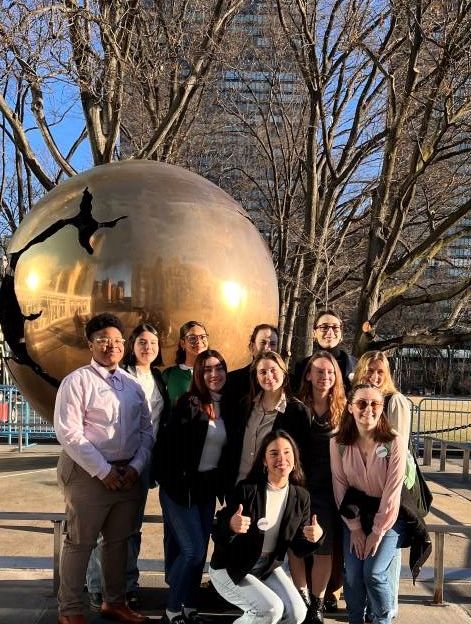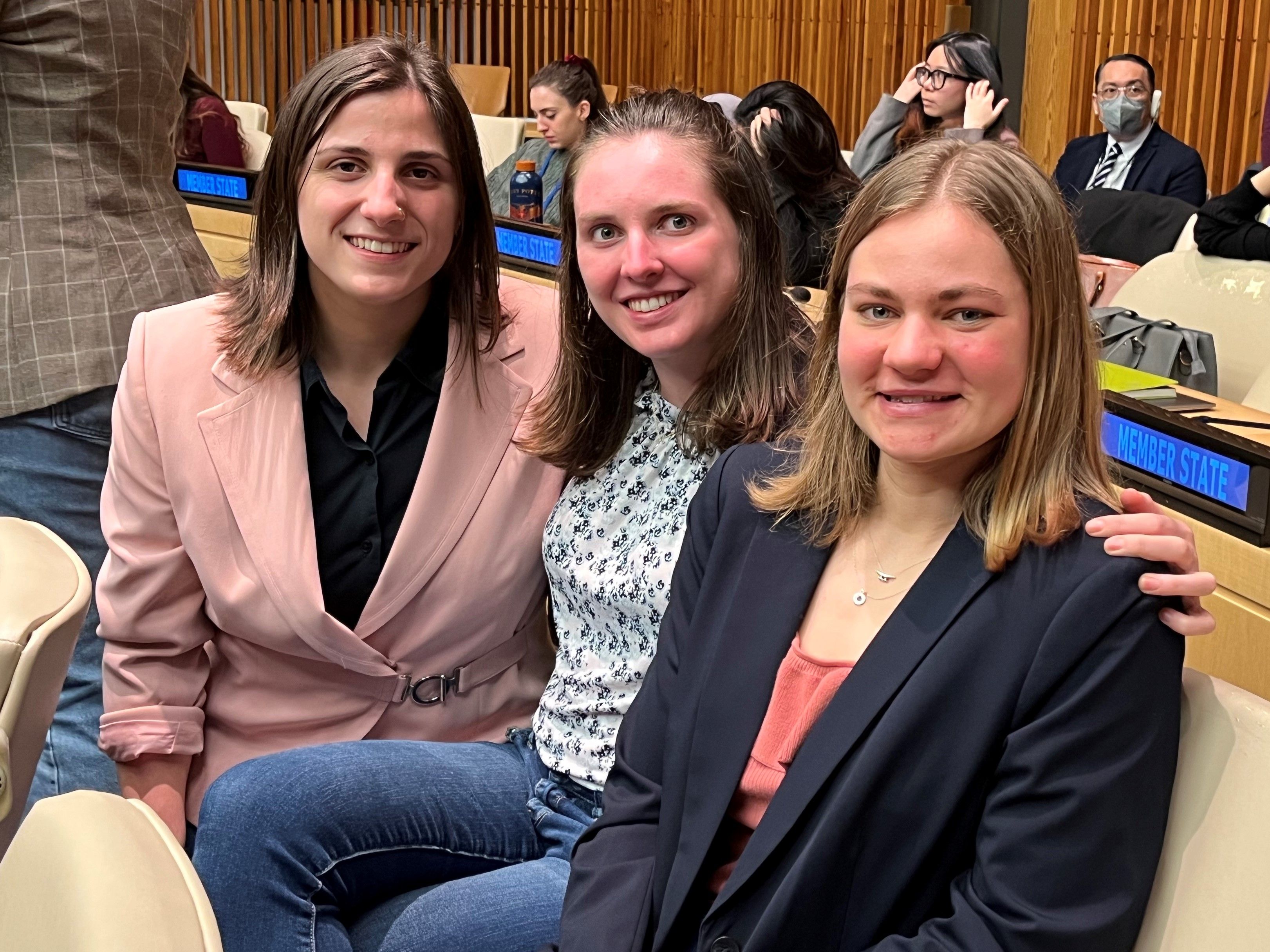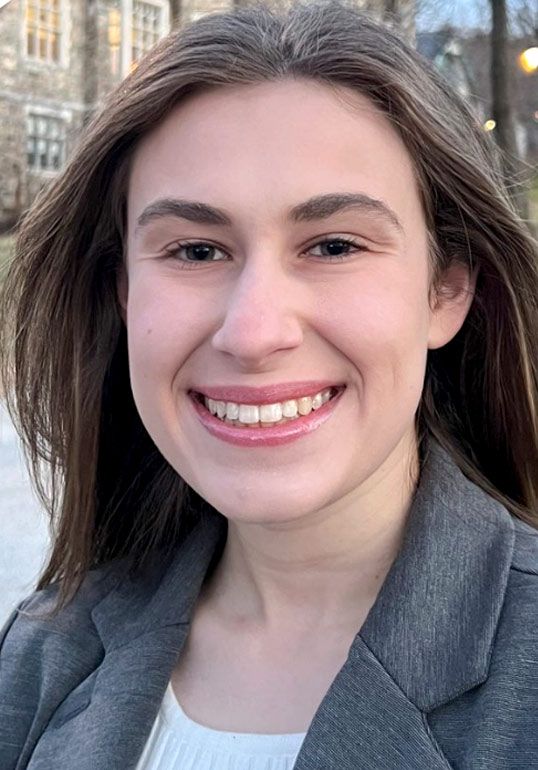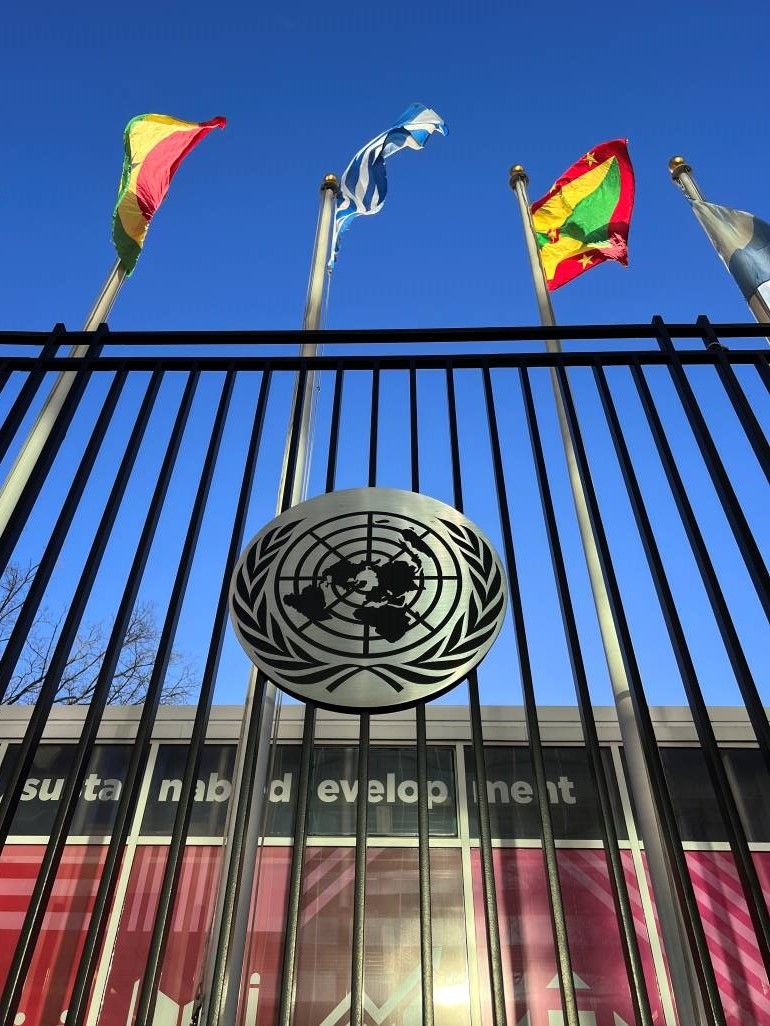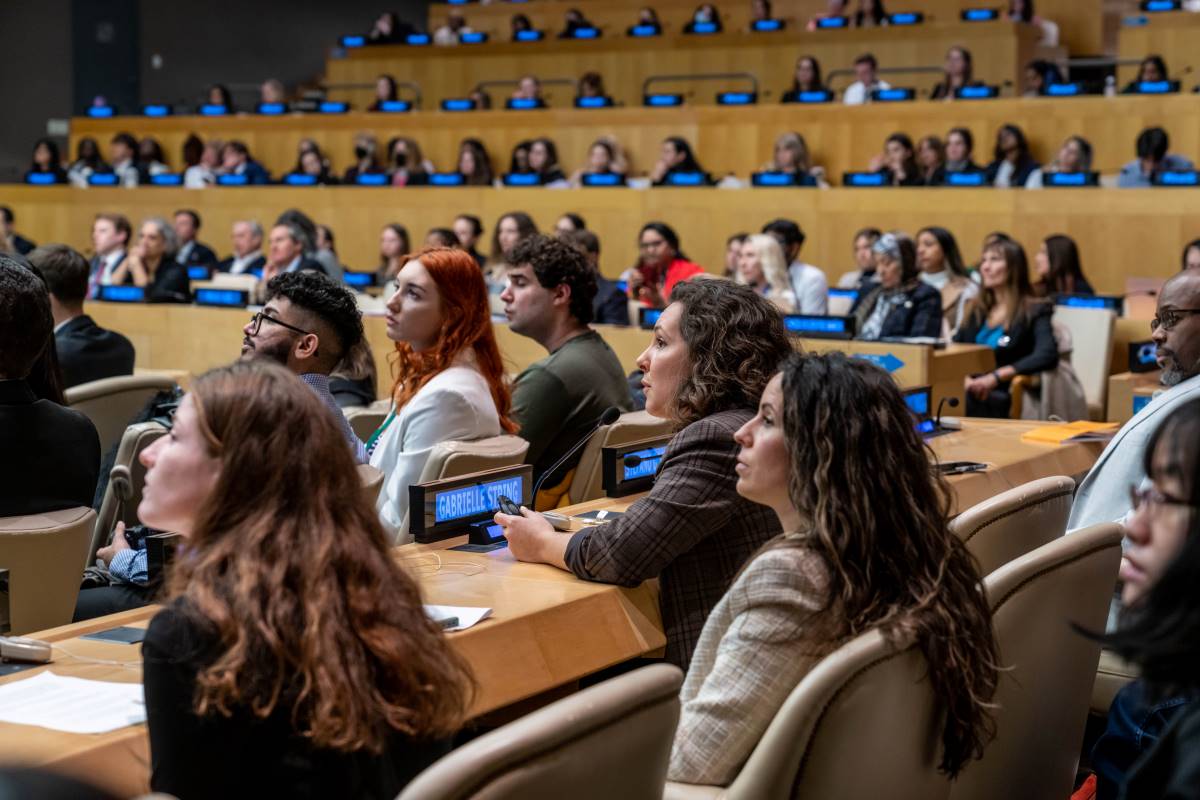
According to new data from the National Science Foundation, women earned about half of all science and engineering bachelor’s degrees and associate degrees in 2020, which reflects significant progress made over the past decade.
Still, women represent only about a third of the STEM (science, technology, engineering, and math) workforce and earn consistently lower wages than men.
“We really need to make sure that there's empowerment of girls and women to be active participants at all levels of STEM,” says Gabrielle String, an assistant professor of civil and environmental engineering who has a dual appointment in Lehigh’s College of Health.
String was one of two Lehigh faculty members who took to an international stage—the United Nations Headquarters in New York City—to help get that message across during the 8th International Day of Women and Girls in Science Assembly. A group of nearly 100 Lehigh students, faculty, and staff members attended the Feb. 10 event through the Lehigh-UN partnership.
The aim was to influence public perception of women in STEM and acknowledge the barriers that girls and women face in the field. Right now, there is a push to increase female retention in STEM disciplines, address gender disparities, and further inclusivity.
The assembly “was a powerful opportunity to celebrate the successes we've had,” says String, “so that we can better highlight and learn how to start closing those gaps to reach, in this case, gender parity.”
The day’s agenda included inspiring speakers, networking opportunities, and panel discussions focused on UN Sustainable Development Goals (SDGs) regarding clean, innovative, and affordable infrastructure, industries, and communities.
String took part in a panel discussion where participants related their individual research and career experiences to SDG 11, which, she says, focuses on creating and sustaining cities and communities in the long term. String’s research sits at the intersection of civil and environmental engineering and community and population health, she says. For nearly 15 years, she has worked in the WASH (water, sanitation, and hygiene) research sector.
Ginny McSwain, an associate professor of physics in Lehigh’s College of Arts and Sciences, talked about astronomy and gender equity, highlighting NASA’s changes to their proposal review system to mitigate gender bias.
Lehigh students attending the assembly included bioengineer Anna Edmundson ’23 and computer science and business (CSB) major Zoe Sherman ’25. Read more about their experiences below.
What did you take away from this experience?
Anna Edmundson: It was a full day to have set aside to think critically about gender roles and inclusivity in general. I thought that it was successful in bringing people together.
Zoe Sherman: I saw how many ways students can get involved at the UN. You don't just have to be a political science major—I'm a computer science and business major, and I was able to go! There are multiple opportunities to visit the UN through Lehigh, and beyond just visiting, there are other ways of getting more involved such as becoming a youth ambassador for an NGO. We were walking around with Dr. Bill Hunter, who runs the Lehigh-UN program. He knew everyone there, and they all knew him. It was really interesting to see just how intertwined they were.
Were there any aspects of the presentations that you found inspiring or that really resonated with you?
A. E. Seeing a lot of prominent women give presentations was inspiring. It was really cool to be able to see Lehigh professors present at the United Nations.
Z. S. The Royal Academy for Science is helping scientists who are blind. They had an international group of scientists there, and their presentation was definitely my favorite one. It was inspirational to hear them share all the work that they've accomplished, and it was cool to hear how they've used their disability to their advantage.
A. E. Yes, they had really interesting backstories and experiences, and it added a lot of perspective to how I viewed science, as well as inclusivity.
Have societal messages about gender ever made you second-guess your decision to pursue a career in STEM?
A. E. I experience a little bit of second-guessing when I’m sitting in a meeting and I’m the only woman there. It can be intimidating. So, I think not having enough women in the engineering field can make it harder to find community.
Z. S. There have definitely been moments in my education and work experience at my startup where I've been one of only a few girls in the room, and it's definitely made me feel uneasy and made me question if I belonged in that room. I think Lehigh has done a really good job of making everyone feel safe and welcomed. I think there were definitely moments where I was questioning if this is a field I want to go into, but I really enjoy it.
As a woman pursuing a career in science, what barriers do you think have made this pursuit more difficult than that of your male counterparts?
A. E. In some of my experiences in the industry, there's this weird feeling of needing to go above and beyond in order for people to listen to you. My female friends also have experienced that at science-related companies that are mostly male dominated—they sometimes feel that they aren't listened to as much as their male counterparts are. I think it's just, in general, feeling the need to go above and beyond to even be taken seriously.
Z. S. Overall, Lehigh has done a good job of helping to lower that barrier in terms of making female students feel welcomed in STEM courses. However, in my opinion, the biggest roadblock is the internal struggle of imposter syndrome—feeling like you don't belong there. I've personally felt it multiple times. I believe it often gets reinforced by our male peers. Multiple times, I have had male students in class just assume I don't understand course material. They will just lean over and start explaining the content without me expressing any confusion or even talking to them. It creates an awkward moment and further perpetuates my internal thoughts that I don't belong in that room.
What can be done to make STEM fields more approachable and open to girls and women?
A. E. It is important for women to take on additional work that our male counterparts don't have to do, and the additional work is reaching out to younger women to show them that there is a place for them.
Z. S. The Society of Women Engineers and Women in Computer Science at Lehigh hold programs with local schools to show girls how accessible it is and get them excited about going into STEM. Support from these two organizations on campus helps with studying and making friends in general.
Why do you feel it's important to acknowledge gender disparities in STEM fields and highlight women engineers and scientists?
A. E. Getting into the field is harder for women just because of the lack of community and the lack of representation, so it's obviously important to make sure they're being appreciated and celebrated for that extra work that they have to do.
Z. S. It definitely is important because it helps women in the industry feel like they belong there and recognizes the significant work they are doing.
—Brooke Bisceglia ’23 is a student writer for the P.C. Rossin College of Engineering and Applied Science

